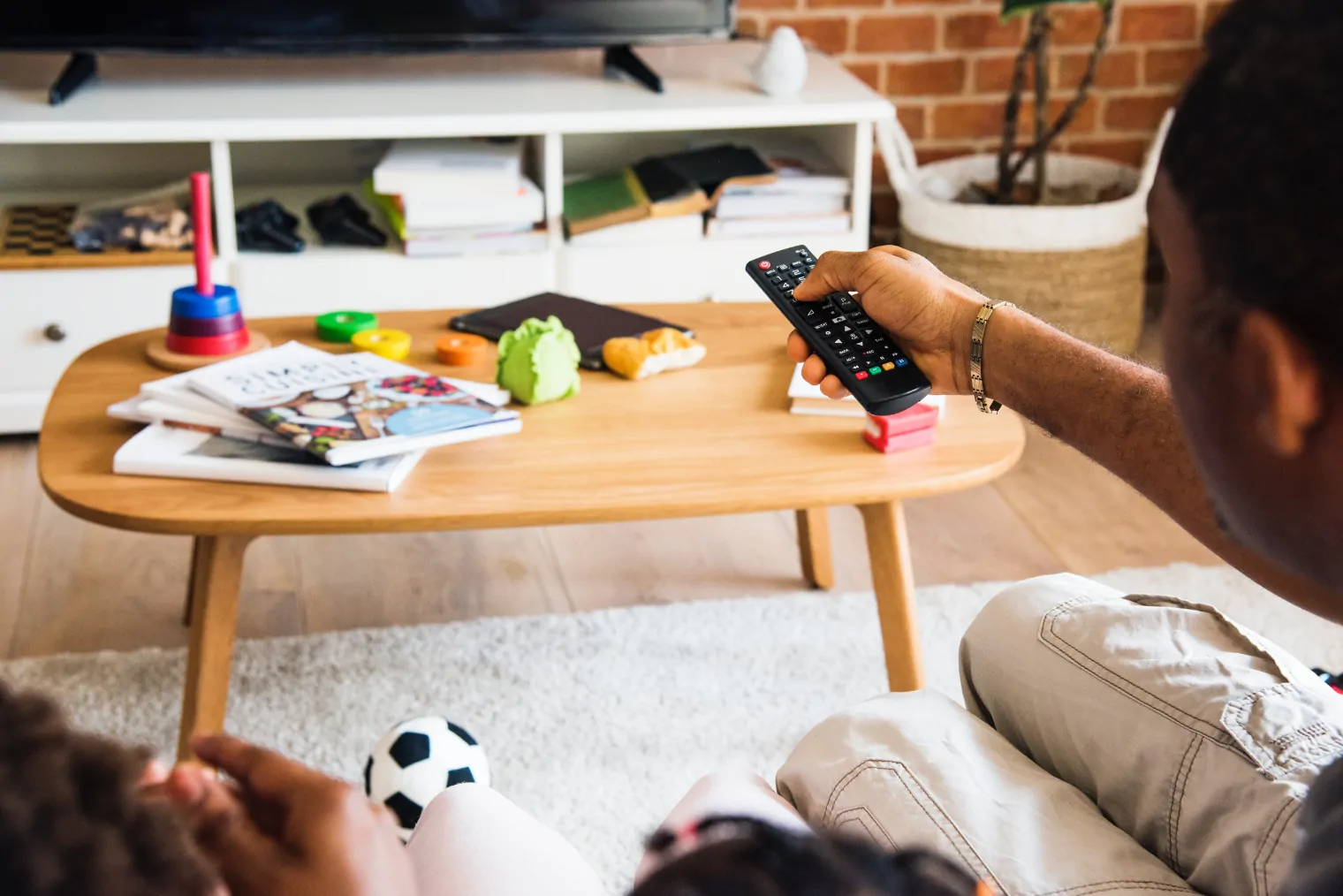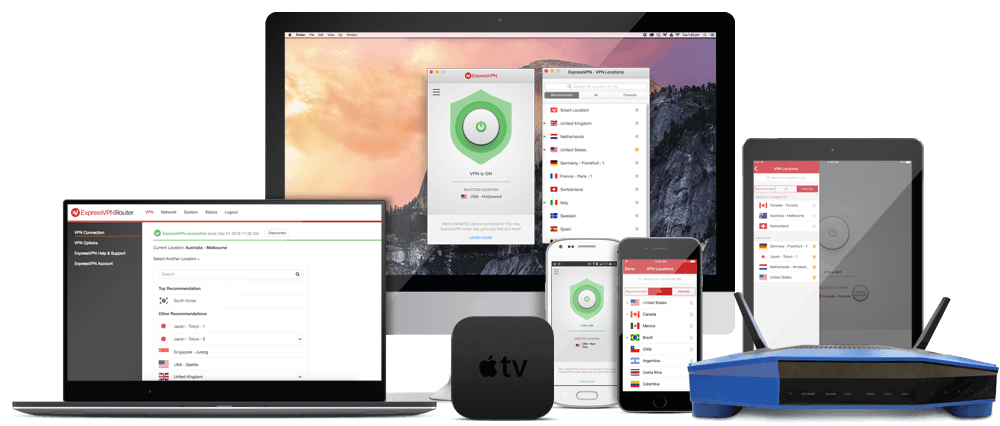Watching a movie or your favorite TV show after a long, hard day at work, is one of the many advantages modern society has to offer. We all love to kick back, relax and watch Jean-Claude Van Damme kick some terrorists around like they are rag dolls. And who can blame us?
Unfortunately, not all of us are lucky enough to have unlimited access to every movie and TV show ever made. And we are not only talking about the people who don't have access to the internet. A huge number of people that use the internet on a daily basis have limited access to the internet in general. This is mostly thanks to geo-restricted content.

Geo-restricted content and how to fight it
Basically, geo-restricted content refers to all type of data or content that has a limited access for users based on their location. There are many reasons and justifications for geo-restrictions. For example, it could be some copyright conundrum or simply a case of not wanting access from a country that you find irrelevant to your website. No matter the reason for geo-restricted content, the bottom line is that it's annoying and we hate it. All we want is to watch movies in peace. But how can we do that if our access is denied due to our geographic location? Well, the most reliable way to determine the location of the user is through their IP address. Luckily for us, there are ways to bypass this and literally hide your IP address from websites. Yes, it’s sort of lying, but it’s a small price to pay.
Hiding your IP address with a VPN
 Among many ways to hide your IP address, the best and easiest method to hide it is to simply use a VPN. VPN is short for a virtual private network, but you can imagine it as your own, personal office that you can set up anywhere you want. Your office can be moved to any location in any country. While you surf the web from this office, what you do online is your own, private business.
All of the data you send and receive through a VPN is encrypted. Nobody knows what you are doing, and you are even hidden from your Internet service provider. Another thing that goes to your favor is the IP address change. Your IP address is replaced with the address of a VPN server, and this is when you get unlimited access to all the movies and TV shows you can ever watch.
Among many ways to hide your IP address, the best and easiest method to hide it is to simply use a VPN. VPN is short for a virtual private network, but you can imagine it as your own, personal office that you can set up anywhere you want. Your office can be moved to any location in any country. While you surf the web from this office, what you do online is your own, private business.
All of the data you send and receive through a VPN is encrypted. Nobody knows what you are doing, and you are even hidden from your Internet service provider. Another thing that goes to your favor is the IP address change. Your IP address is replaced with the address of a VPN server, and this is when you get unlimited access to all the movies and TV shows you can ever watch.

The best VPNs and how to choose
This question is not only a matter of finding the best VPN out there. Most VPNs have some pros and cons, but this a matter of finding the one that will be just right for you. This doesn’t actually mean that the same VPN will necessarily be the best option for everyone else. Depending on your needs, you are not always going to choose the same VPN. In this particular case, we are talking about watching media online that you can’t access from your country. This particular use for a VPN has its own specific list of considerations. If you really want to make the most from a VPN, always have these questions in mind before simply choosing a random VPN and regretting it later.
Server location
One of the most important things that you have to consider is the location of the servers. This is especially true when we talk about streaming content online. If you regularly want to watch content from a particular area, make sure that a VPN has a hub in that location, or if you regularly watch content from different areas, choose a VPN that offers a wide range of locations.
Browsing speed
Securing yourself some privacy online can come with a price. The price comes in the form of reduced browsing speed but, to be honest, it’s not always a drastic reduction. It can even be hardly noticeable. However, at other times, your internet speed can slow down significantly and bring back nostalgic memories of dial-up connection that we all remember with joy. Now, if you aren’t a nostalgic type and you never really enjoyed the beautiful melody dial-up used to create, you might want to avoid VPNs with slower connection speed. And yes, this means that you will probably have to spend some extra cash, but if you are on a tight budget, you can still reach some kind of compromise.
Privacy and protection
There are several things to look at when we talk about security on a VPN. Firstly, there are some providers that keep logs of browsing history and user data. This isn’t much of a problem because it’s not like they are giving away free user data on regular basis. However, you can get into a problem if someone invests time and effort in locating you and tracking your data. By choosing a VPN that doesn’t keep logs, you get an additional level of privacy if you really need one. Additionally, some providers use the same IP address for several users. The logic behind it is that it is harder to find a particular user if there are many users using the same IP address. And this logic works, which makes this another way to boost your privacy and increase security.
Blocked files
There are some sneaky VPNs out there that block some types of files, especially the ones used for streaming and downloading. Since streaming is what you are here for, these are also the ones that you want to avoid.
Multiple devices
Do you exclusively stream movies or TV shows from your computer? Do you use a laptop, a phone or a tablet as well? If you find yourself watching geo-restricted media online on multiple devices, or even if you use only a couple of devices, make sure that your VPN lets you connect more than just one. Most providers let you connect at least a few devices, but you should always check.
Free trial
Whether a provider offers a free trial or not doesn’t actually matter from our point of view. At least it’s not crucial. However, if a VPN that you find interesting has a free trial period, you can use it in your advantage. You can sign up for a free trial and see if you like what you are offered. You can even check how secure a VPN really is on numerous websites that determine your IP address. Simply go to whatismyip.com and see if the IP matches your actual location. If not - great!
Server quantity and bandwidth
Quantity doesn't always matter the most, but in our case, it can really mess with your experience while watching movies. A server can only take so much before it simply becomes overcrowded. This easily leads to slowed down browsing speed and your experience is already starting to shift towards negative. To make the matters worse, browsing media eats up a lot of bandwidth and your experience is now the one that you want to forget as soon as possible. Pausing a movie so it can load just a bit, only to be forced to pause it again in just a couple of minutes, is not an experience worth remembering. Unlimited bandwidth and a provider with more servers are preferable.
The looks
Looks matter and anyone who says differently is lying. The only question is how much they matter. In our case not much, but again, looks do matter at least something. You can tell a lot about a thing based on its look, and while it's true what they say about judging a book by its cover, you can still say something about the said book with a certain dose of certainty. The same goes for a VPN provider. By taking a gander at how a VPN looks, you can see if the software is user-friendly if you personally can use it and if you can use it with ease and comfort. If it takes you an hour to turn it on or change the location into which you are tunneled, all other hypothetical advantages aren't worth choosing that particular VPN.

Connecting to a VPN
Unless you choose to connect to some random VPN without any previous research, you should have no problem connecting any device to a private network. There are two basic ways to do this, both fairly easy and straightforward. The first method is to manually configure a VPN connection on a device or router. Most providers allow you to do this and, even though this isn't hard to do, there is a far simpler way to do it. Plus, this isn't the most secure way of connecting to a VPN, so you should only use it for basic web surfing. The best way to connect to a VPN is to get an app that can connect you to a VPN in a matter of seconds. The benefits of connecting through the app are enormous, from increased security to simply being easier and you can get an app for any platform - PC, Mac, Android, iPhone, iPad, or Linux, you name it. Just to see how easy it is, here is an example. It literally takes you no more than a few moments to establish a connection through a VPN, and it takes only three easy steps. There is nothing you can do wrong and there are no unnecessary distractions.
Getting caught and legality of VPN
Not all VPNs are the same. Some offer more protection and privacy, while others have different advantages. You should never discard the level of security that VPN has to offer, especially in locations that may be prone to excessive punishment for internet users that use restricted websites and content. Now, even though using a virtual private network can be extremely easy, making a secure network that encrypts all the user data is not an easy task. That's why the best of the best among VPNs can be a bit costly, but if you really want to make sure that you don't get caught and that your browsing activities can’t be seen by a third party, you shouldn’t spare money. If you are still having some doubts, once again, you can check your IP address online, to make sure it has changed. Additionally, high-quality VPNs offer a kind of a kill switch. This is basically a button that prevents any data from being sent or received by your device in case you are suddenly disconnected from your VPN. Another useful feature for not getting caught. The legality of the whole thing is what troubles many users. Truthfully, the situation is somewhat complicated. Using a VPN, in general, is legal in most countries, excluding some countries that we would expect not to allow the use of VPN. Browsing media online is a field that can hardly be regulated, and for example, you can even watch Netflix with a VPN. Nevertheless, using a VPN for activities that are otherwise illegal without the use of a VPN doesn't make them legal. Many people use VPNs to disguise online activities that are against the law and there are some VPNs that, despite the promise of not keeping logs, still share their user information with the authorities if they have to. So just in case, don't try anything too crazy when browsing through a private network.
The best VPN in general
All in all, the best virtual private network is the one that has the fewest leaks. Leaks are your private information that got exposed for any possible reason, whether it’s a flaw in the security system or simply an unexpected disconnection from a VPN server. By determining how many leaks happen on a VPN and how often they appear, you can discover the most reliable and the best VPN in general. This is a VPN that can offer you a piece of mind and security at the highest level. There are online tools that you can use to test the quality of the VPN and the quantity of the leaks, and once you've established this, you can proceed to finally choose your very own VPN.
 Written by
Written by